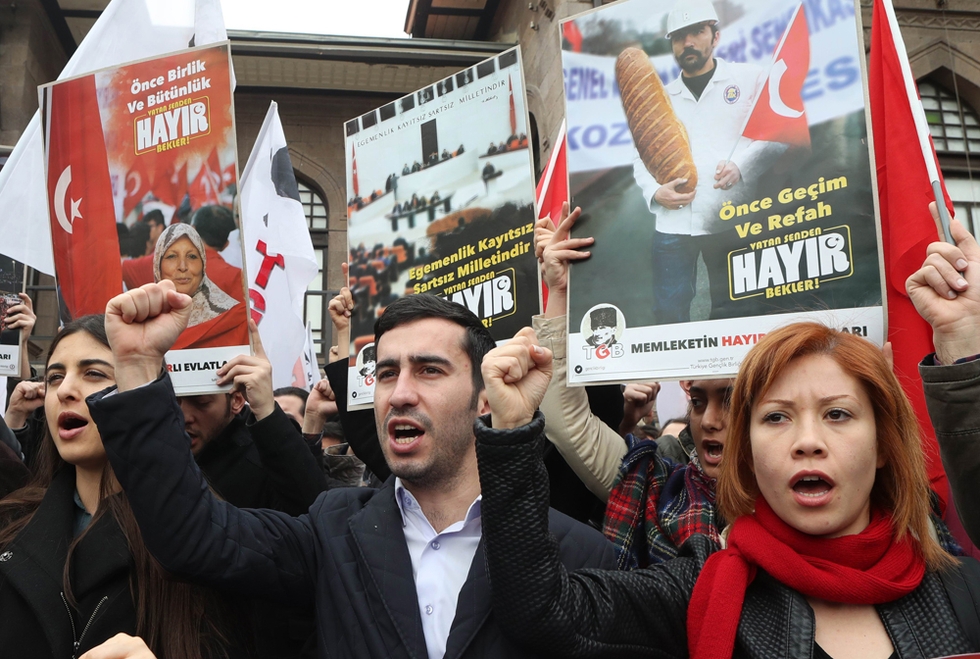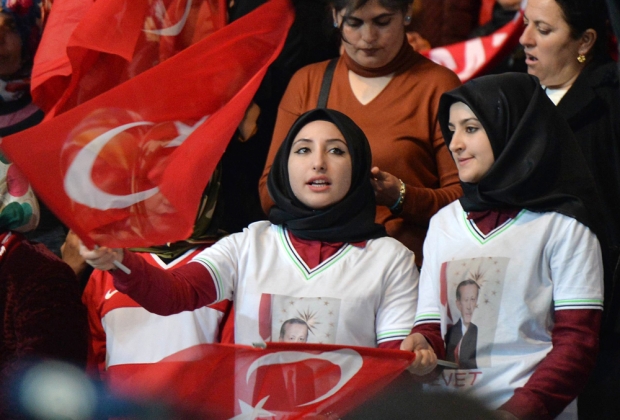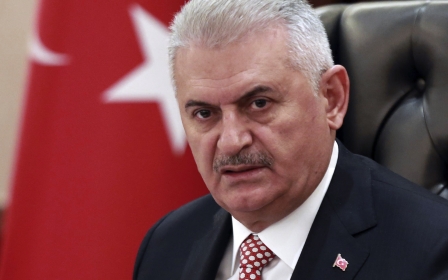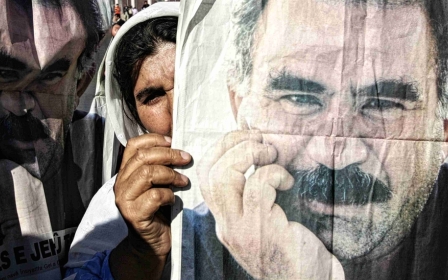'If Erdogan wins it will be worse for us': Kurds fear stronger presidency

ISTANBUL, Turkey - Derya Okatan, a leading journalist on Istanbul's Ozgur (Free) radio station, sensed what was to come when its website was shut down without warning on 28 September last year.
The staff prepared for the next possible step and were not surprised when three days later police broke through the broadcaster's office doors and stormed its studios.
"Fourteen staff were beaten up and arrested. The building was officially sealed," she told a delegation of present and former members of the European parliament and the Council of Europe in Istanbul a few days ago.
What particularly angered her was the confiscation of equipment. If the station is allowed to re-open the staff will have to start from scratch.
Fourteen staff were beaten up and arrested. The building was officially sealed
Derya Okatan, on the closure of Ozgur radio
In Diyarbakir, the main town in Turkey's largely Kurdish south-east region, the European MPs heard a similar story from Baris Baristivan, a broadcaster for Ozgun Gun (Free Day), which had launched in 2004 as the first TV station to be allowed to use the Kurdish language.
On 28 September last year, the same day as the police operation which closed the Ozgur radio station's website in Istanbul, police shut down Ozgun Gun TV.
They were acting under the state of emergency declared after the failed coup of July last year. The following month police mounted another wave of media closures across Turkey.
Scores of journalists were already under arrest or had been sentenced to prison before the coup, but in its aftermath this number vastly increased.
Along with media people, more than 40,000 civil servants, army officers, prosecutors, judges and academics have been jailed since the coup, according to Human Rights Watch.
The majority are alleged sympathisers or activists of the Gulen movement, which the Turkish authorities blame for mounting the coup.
But that total includes 1,482 people who are alleged to have links with the outlawed Kurdish Workers' Party (PKK), which had no part in the coup attempt.
Turkey has become the world's biggest jailer of journalists, with 154 behind bars at the latest count.
Of these, 82 are alleged Gulenists while 30 are accused of links to the PKK, a blanket charge which Human Rights Watch says affects every Kurdish press person. Some 169 media outlets and publishing houses have been closed by emergency decree across Turkey.
While the post-coup clampdown has mainly targeted Gulenist suspects, Baristivan says it has had a proportionately bigger effect on pro-Kurdish journalists.
"There is only one TV which still broadcasts in Kurdish and it's government-run," he told MEE.
The vast bulk of pro-Kurdish radio stations, news agencies and websites have been closed. This is matched by the arrest of scores of Kurdish politicians since the coup, including MPs and elected mayors.
The government's campaign against the Kurdish movement has aims both short term and long. Analysts say it is designed to weaken the movement but also, more immediately, to deny a voice to advocates of a No vote in the 16 April referendum on President Recep Tayyip Erdogan's plan to create a super-presidency.
It will give the president powers to close parliament, control the budget, nominate ministers and senior judges and stay in power until 2029.
The People's Democratic Party (HDP), the largely Kurdish party which had 59 seats in parliament before 29 of its MPs were arrested in the post-coup clampdown, is calling on the electorate to vote No.
The option of boycotting the poll was rejected on the grounds that it would be a waste since the "No" campaign appears to have a realistic chance of winning.
It is not just the HDP which supports the "No" side. So does the Republican People's Party (CHP), a traditional Kemalist social-democratic party.
There is even dissent among pro-government factions.
Erdogan's ally in the drive for a super-presidency, the Nationalist Movement Party (MHP), is divided, and there is some dissidence within Erdogan's ruling AKP and its usual voters. They approve of the party's ideology and record but have concerns over civil liberties.
"Many AKP supporters don't think a strong presidency is necessary," said Zuleyha Gulum, a lawyer with the Women's Freedom Assembly in Istanbul.
'Many AKP supporters don't think a strong presidency is necessary'
- Zuleyha Gulum, lawyer with the Women's Freedom Assembly
Since the date of the referendum was announced, every opinion poll has shown a lead for the "No" side.
Some Kurds are anxious about the implications, although they will vote "No". One Kurdish international relations student, who did not wish to give her name, said: "If 'Yes' wins, we'll not have elections or the rule of law any more. If Erdogan loses, there will be revenge against the Kurds."
Kurdish politicians express confidence that a "No" will curb Erdogan's push toward authoritarian rule. "If Erdogan wins it will be worse for us, but if 'No' wins Erdogan will have to put a brake on his ambitions. We have courage and faith," said Ayse Serra Bucak, the deputy co-mayor of Diyarbakir.
Gulestan Kilic Kocyigit, the co-chairwoman of the People's Democratic Congress (HDK) , an umbrella of leftwing and Kurdish groups which founded the HDP as its vehicle for access to the Turkish parliament, was also optimistic.
"A loss for Erdogan would signal the beginning of his political end," she said.
New MEE newsletter: Jerusalem Dispatch
Sign up to get the latest insights and analysis on Israel-Palestine, alongside Turkey Unpacked and other MEE newsletters
Middle East Eye delivers independent and unrivalled coverage and analysis of the Middle East, North Africa and beyond. To learn more about republishing this content and the associated fees, please fill out this form. More about MEE can be found here.





